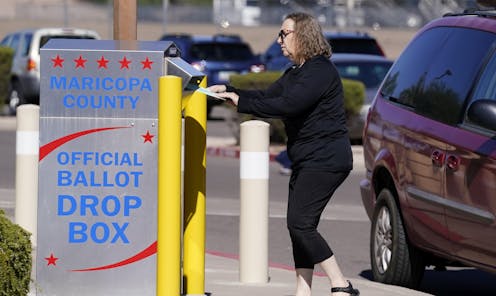Catholic conflicts on marriage continue, even decades after Vatican II
- Written by Joanne M. Pierce, Professor Emerita of Religious Studies, College of the Holy Cross
 Pope Francis commemorates the 60th anniversary of the opening of the Second Vatican Council by celebrating a Mass.AP Photo/Alessandra Tarantino
Pope Francis commemorates the 60th anniversary of the opening of the Second Vatican Council by celebrating a Mass.AP Photo/Alessandra TarantinoThe past 60 years have been a period of change and reflection for many in the Catholic Church, initiated by the Second Vatican Council in the 1960s and continued by the current synod on synodality.
In the...
Read more: Catholic conflicts on marriage continue, even decades after Vatican II










